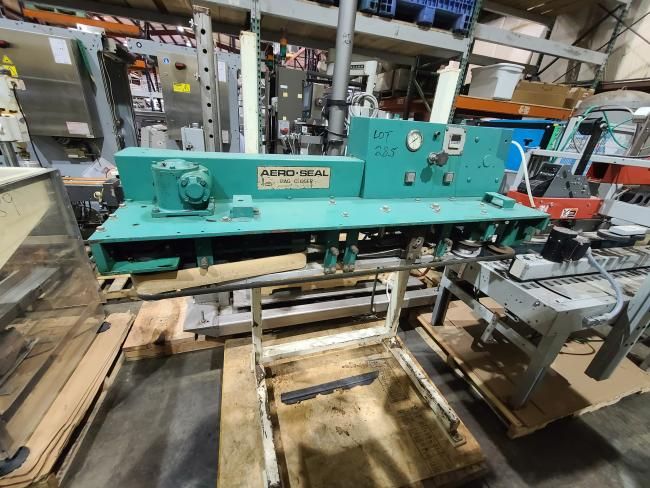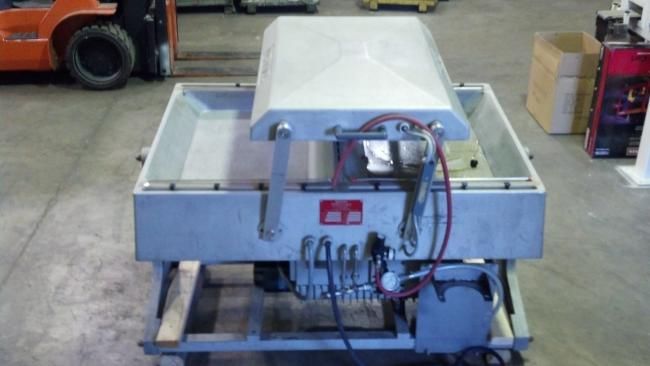Bag sealers are an essential piece of packaging equipment for production lines in industrial, commercial, and manufacturing facilities across industries. How do you choose the right type of bag sealer for your operation?
Vacuum sealers and heat sealers are two popular bag sealing machines that can be used to seal and store a variety of products. However, there are differences between these two sealers that may impact your decision on which sealer to purchase, including how they preserve and protect products.
If you are looking to add a bag sealer to your production line, start by learning more about vacuum sealers vs. heat sealers.
What Are Heat Bag Sealers?

Heat sealers are machines that seal plastic bags, pouches, and containers using heat. Types of heat bag sealers include impulse heat sealers, direct heat sealers, and continuous band sealers.
While impulse sealers apply short bursts of heat to seal thermoplastic bags, direct heat sealers apply constant heat to seal thicker materials. Continuous band sealers, on the other hand, seal a wide range of bags. As packages move through the machine (automatically or manually), they are heat sealed and then moved on a conveyor belt to the collection point. These machines can seal a higher volume of bags at faster speeds than impulse or direct heat sealers.
What Are Vacuum Bag Sealers?

Vacuum sealers are a specific type of heavy-duty heat sealer that extract all the air from the package using an air compressor before applying heat to seal the material. By removing air and moisture before sealing the package, vacuum bag sealers protect products from oxidation, corrosion, and spoilage for long periods of time as well as reduce the volume of the final package.
What Is the Difference Between Vacuum Sealers & Heat Sealers?
Heat sealers and vacuum sealers each have their advantages, but there are clear differences between these machines.
The main difference between vacuum sealers and other types of heat sealers is that vacuum sealers draw air out of the bag before creating a seal while heat sealers do not remove oxygen from the package. Since vacuum sealed bags remove air and moisture from the package before sealing, they prevent the growth of mold, bacteria, and other contaminants, extending the shelf life of the product, preventing freezer burn, and preserving the flavor and quality of the product, making vacuum sealers ideal for the food, beverage, pharmaceutical, and cosmetic industries.
However, heat sealers—especially continuous band sealers—are quicker and easier to use than vacuum sealers and can seal multiple packages at once. For products that are not at risk of spoilage or contamination, traditional heat sealers may be a more affordable and efficient option.
In some cases, you may be able to combine the advantages of vacuum sealers and heat sealers by adding a vacuum component to a continuous band sealer.
Talk with a trusted packaging machine manufacturer to see what bag sealer is the best fit for your production line.
Buy New or Used Bag Sealers at HP Packaging
At High Performance Packaging, we buy and sell used processing and packaging equipment for many different industries. Our high-quality machines have been repaired, refurbished, or reconditioned by the experts on our team, giving old equipment new life and making it ready to contribute to your production line.
As a leader in the processing and packaging machinery industry, we are proud to offer used packaging equipment from a wide variety of manufacturers, types, and styles that meets your sanitation and quality standards. Whether you want to replace a machine on your production floor or expand your current product packaging capabilities, HP Packaging can help you find the best bag sealers or other packaging equipment for your business.
View our used packaging products or contact us today to learn more about your packaging equipment options.


